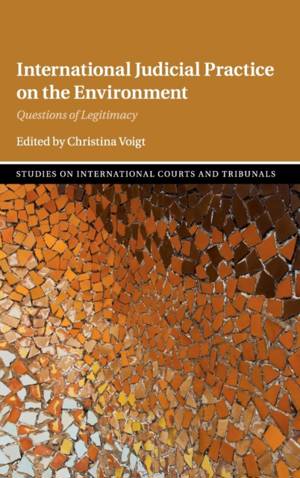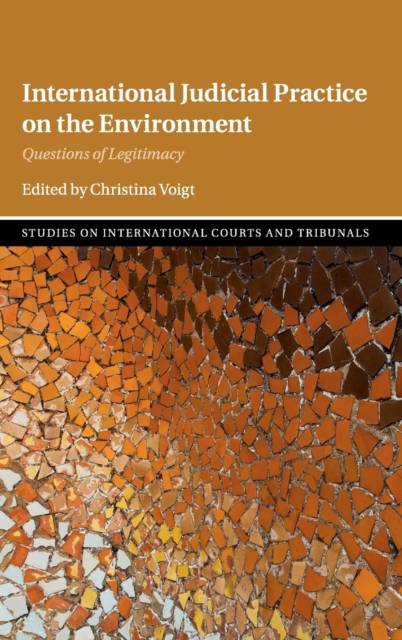
Bedankt voor het vertrouwen het afgelopen jaar! Om jou te bedanken bieden we GRATIS verzending (in België) aan op alles gedurende de hele maand januari.
- Afhalen na 1 uur in een winkel met voorraad
- In januari gratis thuislevering in België
- Ruim aanbod met 7 miljoen producten
Bedankt voor het vertrouwen het afgelopen jaar! Om jou te bedanken bieden we GRATIS verzending (in België) aan op alles gedurende de hele maand januari.
- Afhalen na 1 uur in een winkel met voorraad
- In januari gratis thuislevering in België
- Ruim aanbod met 7 miljoen producten
Zoeken
International Judicial Practice on the Environment
Questions of Legitimacy
€ 198,95
+ 397 punten
Omschrijving
More and more environmental cases are being heard and decided by international courts and tribunals which lack special environmental competence. This situation raises fundamental questions of legitimacy of the environmental practice of international courts. This book addresses inter alia questions of who has legal standing to bring an environmental claim before an international court, on which legal norms is the case decided and whether judges have the necessary expertise to adjudicate environmental cases of often complex nature. It analyses which challenges international courts face, which possibilities they have and which advances international judicial practice has been able to make in protecting the environment. Through the prism of legitimacy important insights emerge as to whether international courts and tribunals are fit for addressing some of the most pressing global challenges of our time.
Specificaties
Betrokkenen
- Uitgeverij:
Inhoud
- Aantal bladzijden:
- 502
- Taal:
- Engels
- Reeks:
Eigenschappen
- Productcode (EAN):
- 9781108497176
- Verschijningsdatum:
- 18/04/2019
- Uitvoering:
- Hardcover
- Formaat:
- Genaaid
- Afmetingen:
- 213 mm x 236 mm
- Gewicht:
- 816 g

Alleen bij Standaard Boekhandel
+ 397 punten op je klantenkaart van Standaard Boekhandel
Beoordelingen
We publiceren alleen reviews die voldoen aan de voorwaarden voor reviews. Bekijk onze voorwaarden voor reviews.








